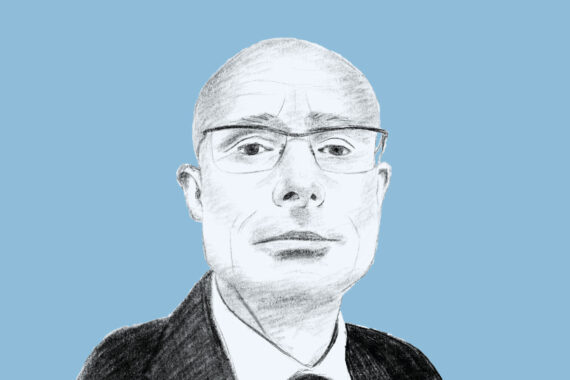Pain killers don’t exist – so how can we help patients in pain?

Reflecting on a new campaign for patients with opioid dependency issues, Dr David Turner asks how GPs can best help those in need
‘Pain killers don’t exist.’
I thought this a rather curious statement for pharmacists to make, given that a significant proportion of their work is concerned with the dispensing of medication that does just that. But, this is the name our ICS has chosen for its opioid awareness campaign.
I have no issue with the aims of the campaign: the reduction of opioid dependence. However, a sweeping opening statement like this is likely to antagonise a lot of patients – as it indeed antagonised me.
I hope none of the authors of this document are unfortunate enough to have suffered from stage 4 cancer, but I can tell them, from personal experience, that when it feels like every pain receptor in your body is screaming at you like a discordant choir of burglar alarms, you will discover that pain killers do very much exist.
Of course, there are many people addicted to opioids in this country who need and deserve our help in reducing their use of these medications. But in doing this we must not stigmatise the majority of patients who use their analgesia appropriately.
One of my issues with a campaign like this, is that it will worry some of the sensible users of analgesia enough to stop them taking their medication, have a relapse in their pain and end up booking valuable appointments to see us GPs.
It is also interesting this campaign is targeted at primary care – as if we are the main culprits. In my practice, of the small number of patients who would be considered opioid dependent, most were started on these medications in hospital pain clinics.
I don’t want to undermine our pharmacists whom I consider important colleagues and allies in healthcare. But opioid dependence is frequently a symptom of more entrenched psychosocial problems further upstream, rather than an isolated issue in its own right. Homelessness, poverty, unemployment, and domestic abuse are just some of the societal ills which lead to opiate dependence and neither we nor our pharmacy colleagues have much power to change these.
Another problem I foresee is patients turning this campaign back on us.
‘Ok doc I’ll cut back on the codeine if you can get my hip replacement operation brought forward.’
Good luck with that in the current climate.
Alternatives to opiates? Gabapentinoids? Nope, they’re also on the naughty step.
How about non-medical treatments: Lifestyle changes? Talking therapy? Acupuncture? Support groups? Reiki? Well fine, if any of them work for you. But judging by our clinic lists, none of those are miracle cures.
Which leaves us… Well, usually alone with a patient in a consulting room, invariably on a Friday evening, facing a choice between what they used to call a ‘quiet repeat prescription’ or an argument. And oddly enough, not a pharmacist in sight.
Dr David Turner is a GP in Hertfordshire
Pulse July survey
Take our July 2025 survey to potentially win £1.000 worth of tokens

Related Articles
READERS' COMMENTS [5]
Please note, only GPs are permitted to add comments to articles











Opioid use in GP is rarely treating pain, mostly treating withdrawal. Chronic pain is not improved by chronic analgesic consumption – but is exacerbated by cessation.
Neurofen have been running a disgraceful campaign trying to relabel chronic pain as a sexist issue under treated by mysogonistic GPs.
I see so many patients with chronic pain from many causes who are able to be mobile, live their lives with some quality all because of adequate pain relief.
If you had to live the rest your life with an acute tooth abscess pain, you would be grateful for opiods. Pain incapacitates, causes depression and suicide
Opioids are not the only group emerging more often from Pain clinics, AND other Hospital Departments, and Prisons, where Pharmacy may do better to implement some Preventive actions rather than putting pressure on GPs to put things right afterwards by confronting patients.
You could include Gabapentinoids, Steroid injections for Hay Fever; Antipsychotics for Dementia, Insomnia, Behaviour problems (and these are extremely expensive too!); Antihistamines; and even PPIs and Amphetamines; Sedating Antihistamines; Hypnotics, Z-drugs, BZDs, Tramadol (totally non-addictive non-opioid wonderful painkiller); some newer Antidepressants; and now an increasing number of —mabs; ‘Rescue Antibiotics for Colds’; ‘Prophyllactic Antibiotics to stop you surgery being cancelled due to a viral infection’; and various dietary supplements and alternatives.
Perhaps it is time to give specialists access to the repeat medication system – on condition that they re-authorise whenever required by the system all the drugs they have initiated!
Completely agree with Prometheus. I have been on transdermal opiates since 2021 for covid-related chest pain and they allow me to continue to function. I have short breaks to avoid tolerance but have to time them in annual leave.